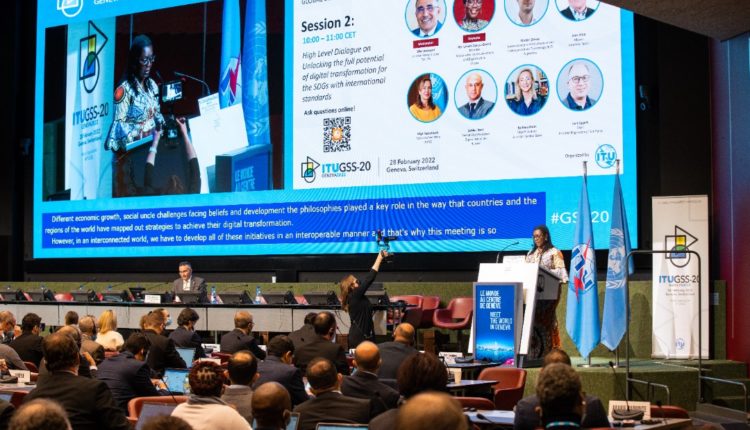The Government of Ghana is employing the application of digital technology to stimulate the growth and transformation of the Ghanaian economy, and, thereby, help ensure that every Ghanaian derives maximum benefit from this process, Communication and Digitalization Minister, Mrs. Ursula Owusu-Ekuful has said.
According to her, the Akufo-Addo led government for the past five years has taken the necessary digital decisions that have provided the necessary results to stimulate the economy on several levels adding that, the future outcome would be to enhance coordination, and provide significant benefits to citizens.
“For Ghana, we are intensifying our digital transformation drive with the ultimate goal of improving lives pursuant to the Sustainable Development Goals and we can only do this by ensuring that the required frameworks are in place. The Government of Ghana through the Ministry of Communications and Digitalization is playing a pivotal role in the development of a robust framework to support the digitalization of the economy in a manner that benefits every citizen.
“But we are mindful of the fact that we cannot do it alone and have to build systems that are capable of being linked up to those developed by our neighbors. We are building fiber to our borders and are active in continental initiatives such as the Smart Africa Alliance. We are also determined to make the African Continental Free Trade Area (AfCFTA) work, clear in our minds that digital technology holds the key to uniting our fragmented and uncoordinated trade infrastructure and systems on the continent” she made this known at the Global Standards Symposium (GSS-20) organized by the International Telecommunication Union (ITU) which happened in Geneva in Switzerland.”
Digital ESG Platforms
She further explained government is working tirelessly to ensure that Ghana and its neighboring countries successfully ensure the establishment of the Environmental, Social, and Governance (ESG) digital platform.
This she says would help to serve as standards that are incorporated by socially-conscious investors to evaluate the sustainability and societal impacts of investments in companies across the Africa continent.
In addition, she underscored the need for such digital advancement, explaining it would enable purpose-driven companies and organizations to address the challenges and opportunities presented by the wholesale shift in how value is defined, measured and shared across the value chain.
“In Ghana, we have decided not to be naïve about the political economy of all these powerful shifts. Whilst we acknowledge the power of digital-enabled ESG standards to create a fairer, more prosperous, world, we also know that in the past we have, as a country and a continent, been marginalized in the creation of similar systems, such as the internet.”
She added, “We believe that our best bet is to partner with our continental neighbours to establish our own digital ESG platforms and networks. We are building systems that speak to our unique reality in the quest to build a fairer, more prosperous, continent. Ghana is a pioneer in the adoption of the AfCFTA Caravan platform, and its supply chain digitization derivative known as ProPer – the Proof of Origin and Product Electronic Registries.”
The Global Standards Symposium (GSS) provided a high-level forum for discussion and coordination which was opened to both ITUmembers and non-members.
This year’s edition was chaired by H.E. MsNeleLeosk, Ambassador-at-Large for Digital Affairs, Ministry of Foreign Affairs, Estonia.
The theme for the Symposium was “International standards to enable the digital transformation and achieve the sustainable development goals (SDGs)”.


Comments are closed.